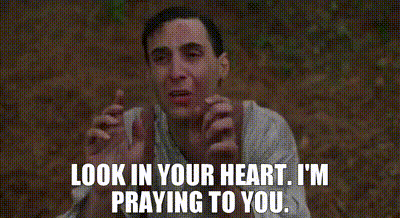Sinners: A Great Movie with One Big Problem
- Pierce Brenner
- 6 days ago
- 3 min read
Creed and Black Panther director Ryan Coogler's vampire movie Sinners was released this past weekend, and if you ask me, it fully lives up to the hype. Not only does it have a lot of entertainingly gruesome horror action, Coogler's script is very well-written and spends a lot of time with its characters so the viewer gets to know them and it means something when they're in danger in the second half. The film's quality is a testament to Coogler's talents for storytelling, character building, and set-pieces, and I'm glad it's off to a good start at the box office.
But for all Sinners does well, it has a major flaw that annoys the hell out of me time after time, year after year: it begins with a scene that happens much later in the movie.

Before anyone comes at me, let me emphasize that, like every trope (often referred to as in media res), this is not an intrinsically bad thing. Starting your film with a scene from the middle of the plot can make for a good framing device. The Deadpool films all utilize this to great effect. Master filmmakers like Christopher Nolan and Quentin Tarantino frequently use it too, often paired with more nonlinear storytelling to make the beginning feel seamless. But it seems like the positive examples are the exceptions rather than the rule, and often feel like a crutch for executives with short attention spans or a lack of imagination.
In recent years, in media res usually takes the following form:
Movie begins with big action sequence with little to no buildup.
Cut to black. Cue a title card that reads "(insert length of time) earlier".
Story properly begins, and you realize the movie has spoiled itself. Flashbacks and other forms of nonlinear storytelling make no other appearances.
This annoys me to no end, and I began to notice what became a trend, ironically, in another movie I really love. John Wick quickly became an icon of modern action cinema for good reason, but it pointlessly begins with what we learn later is really one of the final scenes, albeit not an action-heavy one. After the movie was over, I would tell everyone I talked to who also saw it that I loved, loved, loved it, but didn't like that it opened with a scene near the end and hoped that didn't become a trend. Sure enough, it just kept happening, and continues for some inane reason.
I have to imagine that this trope lives on because producers or studio executives fully believe that all viewers are essentially have the attention span of the world's dumbest goldfish, and cannot tolerate waiting for action in any movie. So if a script makes the audience wait, that just won't do. The movie must open with an explosive set-piece from the second or even third act, or the audience will revolt and demand the studio bosses' heads be mounted on pikes and paraded through the streets of Hollywood as a warning for all who prefer to take things a little slower. Or...something. It's especially irritating when a film begins with what is literally the final scene: exhibit A, Evil Dead Rise, a perfectly solid flick that just couldn't help itself but throw some gore in our faces immediately with a sequence that has nothing to do with the rest of the plot.
I don't really have a solution to this problem, and I don't even know if it is a problem to anyone except me and a handful of Youtube film pundits. But I would urge creatives to stand firm against studio pressure to self-sabotage as much as they can, and would love to remind studios that they don't need to be afraid. If a story is compelling, it will win over audience no matter the speed of its introduction. If anyone in a position of power and influence is reading this (probably not, but worth a try), just...try. Try not spoiling your movie before it's even begun. I'm begging you, please...




Comments